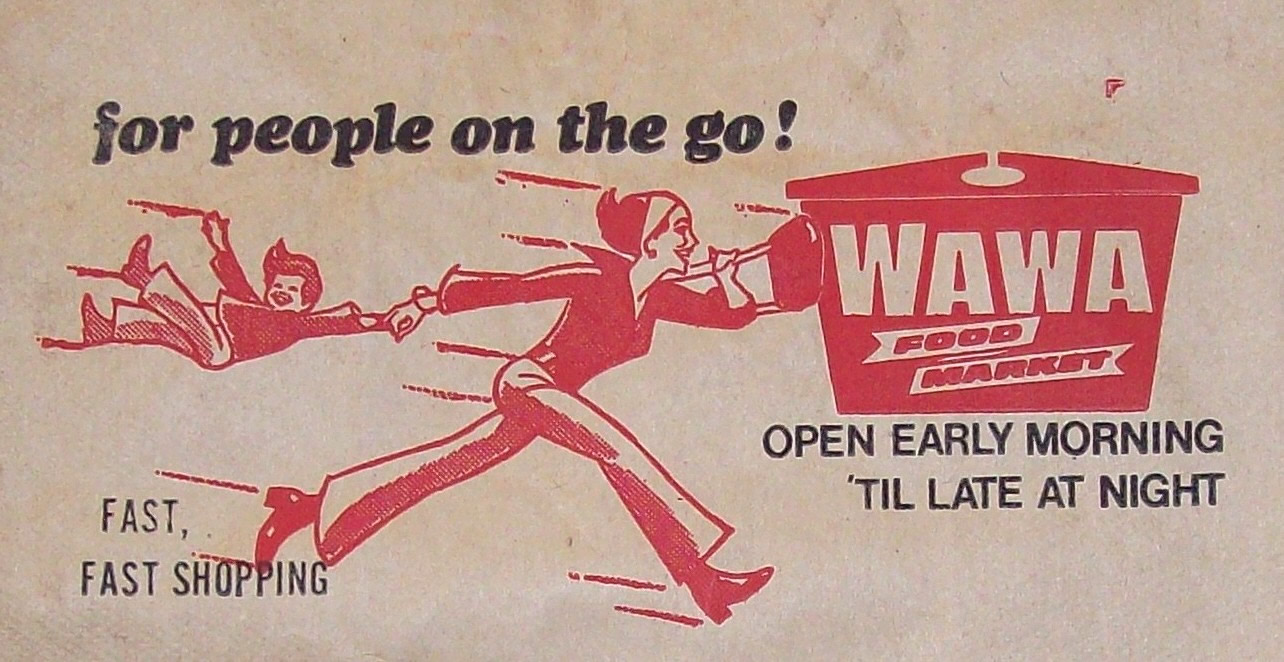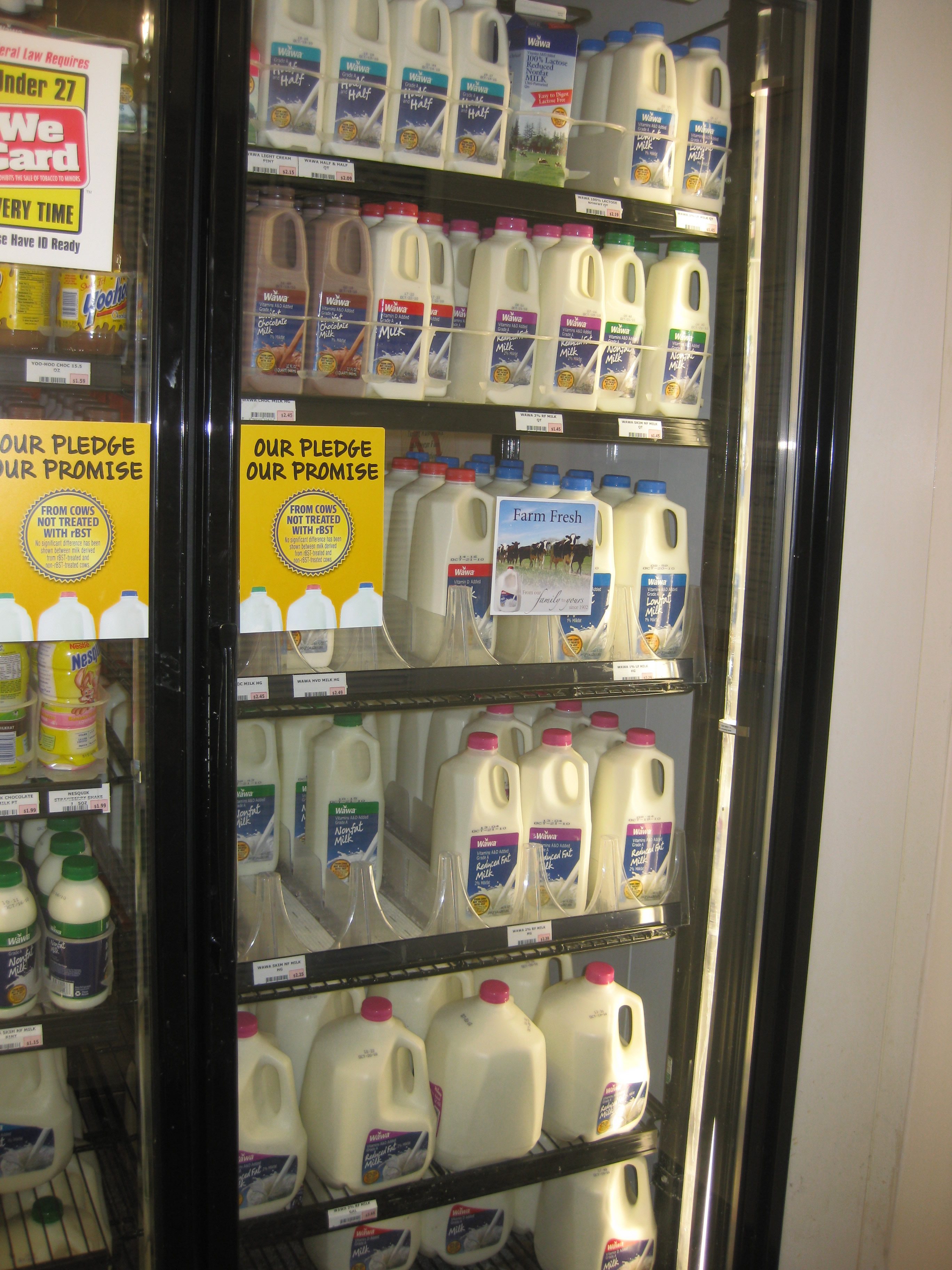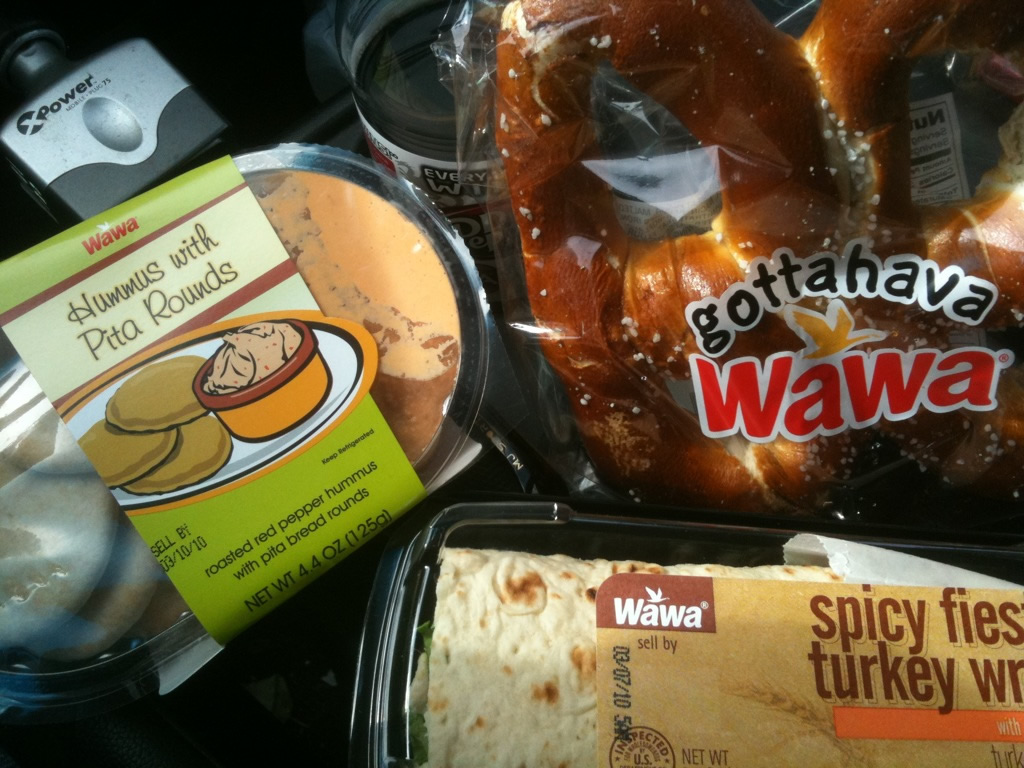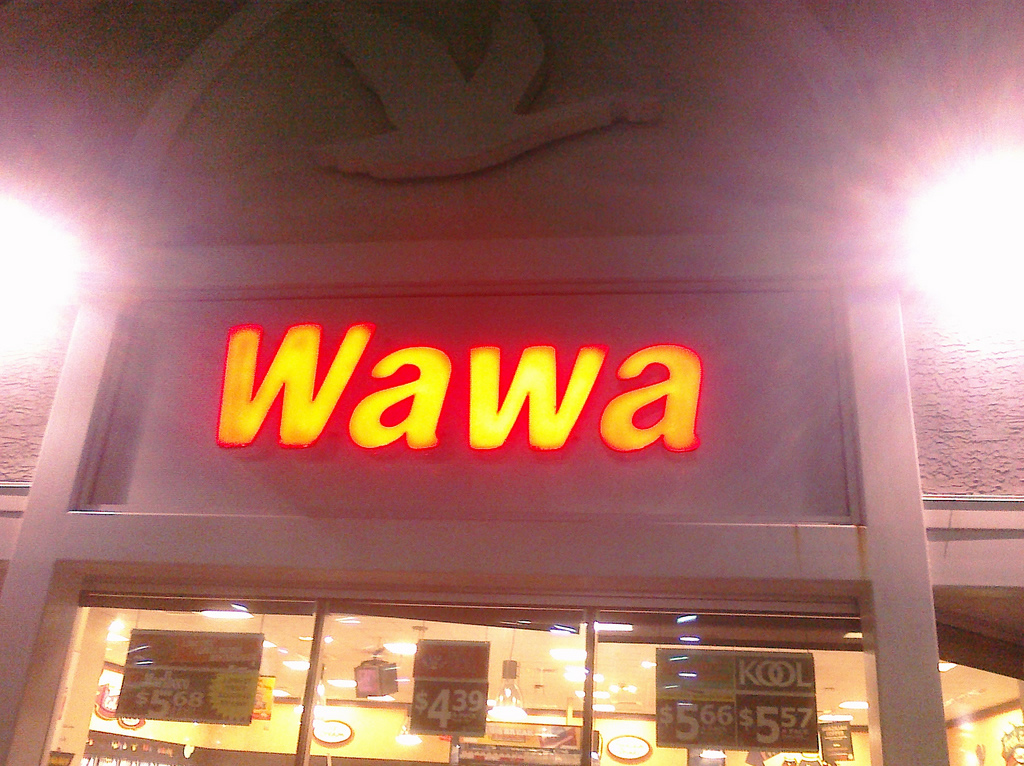Somehow, there is a place to park in the crowded lot among dozens of other cars. In the continuous flow of the morning rush, one person holds the door for the next, who passes on the favor to the person behind. No matter how the morning has gone up until now, this is the moment that changes it all. The smell of breakfast fills the air; by now it is unmistakable, and even though it is the same experience every day, it never gets old. The sweet aroma of coffee, mixed with the comforting scent of breakfast foods, magically turns a three-snooze morning mood into a ready-to-take-on-the-day attitude. It is not a dream; this is exactly what can be observed in thousands of convenience stores across America each and every morning.
The convenience store revolution has spread rapidly across America over the past few decades. Evolving from small food trucks on the side of the road, these once-small vendors have become mega-stores, complete with gas stations and just about every food item from ice cream to fully customizable breakfast sandwiches and subs. The concept is the same, but on a much larger scale. People always seem to be on the go, whether for work or an otherwise crazy schedule, and any opportunity to save time is a small victory. In southeastern Pennsylvania, Wawa Food Stores are a perfect example of the modern day convenience store that serves a diverse base of customers who all want one thing: Convenience.

Convenience as a selling point has become embedded in the minds of Americans. Wawa has been a pioneer in creating this new “convenience culture,” in which individuals are willing to pay more for easier shopping. A convenience store’s entire purpose is based on the fact that people will pay more for certain things if they do not have to go through the hassle to make those things themselves. An article in the Knight Ridder Tribune Business News describes one man’s lure to Wawa. “…I pass by three of them on my way to work. It starts with signage that is the same color and shape as a sunny side up egg, and ends with a $1.25 cup of coffee I could have easily made at home for 10 cents.” When put this way, it seems ridiculous, but ask any frequent convenience store coffee drinker and they will tell you the same thing with a smile: Somehow, coffee just tastes better out of a paper cup with a plastic dome lid.
This “convenience culture” dates back well before the days of flavored coffees and touch screen ordering systems--over two centuries, in fact. While Wawa is well-known today for its coffee, its origins were far less caffeinated. The business ventures of the Wood family began in the late 18th century with Richard Wood III, who opened a general store in Gloucester County, NJ. He carried items such as rum, molasses, and other food products that were abundant in the area due to the large number of merchants who passed through. Richard’s oldest son, David, was largely responsible for expanding the business through networks with other merchants to create new business opportunities. One detailed description of the Wood family history written by Maria M. Thompson claims that “In the early years of the 19th century, David Wood seemed to be everywhere in the Philadelphia-South Jersey Region. He was able to appear omnipresent because he had an extensive network of partnerships and cooperative ventures.” Such ventures included iron, textiles, and even a plan for opening a bank along with his brother, Richard Davis Wood.
Together the two brothers operated the Millville Furnace in Columbia County, which manufactured iron fixtures such as lampposts and fire hydrants on a large scale. Their experience in the iron industry was pivotal in what was perhaps the most influential venture undertaken by the Wood family at the time: the westward expansion of the railroad system from Philadelphia to Pittsburgh, and eventually beyond. Remarkably, at the same time, the Wood brothers also operated a textile mill. It is this business, passed on from Richard to his son George, that is most closely tied with the Wood family’s Wawa business. In fact, the same corporate charter created for the Millville textile business governs Wawa, Inc. today.
The Wood family did not enter the dairy business until the 20th century. It was George Wood who purchased the Rocky Run Dairy Farm in Delaware County in 1902 and transformed it into the Wawa Dairy Farm through large investments in land, livestock, and infrastructure. For five decades, the 1500-acre facility produced some of the highest quality dairy products in the region and served residents of Pennsylvania and Southern New Jersey with home delivery of milk and other goods.
By the 1960s, however, the textile company was sold and home delivery became less and less popular as people started purchasing milk from grocery stores. Fortunately, the hard work and efforts of so many generations would not be lost thanks to the next generation of Wood family business visionaries: George’s grandson, Grahame, created the Wawa Food Stores, better known today simply as Wawa.

The first Wawa Food Market opened in Folsom, Delaware County, in 1964 and began the corporation’s evolution from dairy company to convenience store. Milk was no longer the main focus. Fresh food was served to customers by friendly staff who were just as courteous as the employees who had delivered to homes.
Wawa was not the same company it had been just a few years earlier; it had changed from a dairy company to a grocery. Most people would think that the company name would have changed as well, perhaps to something that would indicate what the new business was offering. But, despite so many changes in the company, Grahame Wood ultimately decided to keep the name.
Over the past five decades of dairy manufacturing and distribution, “wawa,” the Native American Lenni Lenape word for the Canada goose, had become instantly recognizable--if for no other reason than the fact that it was rather strange. Changing the name would only have destroyed name recognition for customers who had been satisfied for half a century. Grahame’s second cousin, Richard D. Wood, who served as Wawa’s CEO for over 20 years, further explained the rationale behind why the name was kept. The goose is believed to be a strong symbol of Wawa’s corporate structure. As Richard D. Wood explained:
Why do geese fly in a ‘V’? Because as each goose flaps its wings, it creates an updraft for the following bird. Working together, the flock increases its flying range by 71 percent over a goose flying solo… Teamwork, trust and encouragement are principles of our corporate culture and are what enable Wawa associates to accomplish feats that others may deem impossible.
Over the years, Wawa has accomplished many feats, expanding and modifying its offerings to customers while upholding the same general philosophy of convenience. Nowadays, more people associate Wawa with coffee than with milk, but they are loyal to the place they can count on for consistent quality, friendly atmosphere, and easy shopping. In a 2006 article, Harold Brubaker of The Philadelphia Inquirer discussed how Wawa has been expanding its private label brand in order to provide a more complete experience inside each store. The goal of such “brand proliferation” has been to make it as easy as possible for customers to get all the items they need in one place. The result has been a substantial increase in variety.

Carrying a variety of products is only a small part of maintaining customer loyalty. The ever expanding number of convenience stores leaves only a few openings to differentiate from the competition, so going above and beyond serving food is a must in this industry. Not only does Wawa employ over 16,000 local community members in almost 600 stores; it also plays a major role in building the communities in which its stores are located. Wawa’s “good neighbor” philosophy includes, but is not limited to, fundraising for charities and making contributions to local initiatives. These programs, in addition to a unique business model and long history of success, make Wawa a valuable asset to the many communities it serves. Its efforts in the community have helped create a devoted customer base that would never enter another convenience store.
As crazy as it sounds, people really do have a special love for places where you can spend just a few dollars and find happiness in something as simple as a quick lunch. New York Times writer Rob Walker detailed just the kind of customer loyalty that Wawa has created over the years. He describes one customer who is on a first name basis with the employees at her local Wawa and was even compelled to create social networking groups full of people claiming their love for not just Wawa but for the specific Wawa location they visit most often. Some communities have several Wawa locations, but for many customers, only one will suffice when they need a cup of coffee or a hoagie, often resulting in driving further than necessary to “their Wawa”. There was even one instance of a wedding taking place at a Wawa location where a couple first met.
Today, it is clear that convenience is no longer the only selling point for stores like Wawa. With customers finding the location that suits their needs best and sticking with it, the opportunity to draw customers away from the competition is quite narrow. The first impressions of a convenience store will likely make or break a customer’s decision to come back, and come back often. For many, a trip to Wawa is a daily occurrence. In a society where consumers always remember what they do and don’t like, history is important, and Wawa has some of the strongest history going.
Sources:
- Brubaker, Harold. “Beyond Coffee and Gasoline.” The Philadelphia Inquirer 17 Apr. 2006: C01.
- “Convenience culture: A lot more than gas.” Knight Ridder Tribune Business News 5 Mar. 2006: 1.
- Embrey, Alison, “The Wawa Way,” Convenience Store News, April 12, 2004
- Halasz, Robert. “Wawa Inc.” International Directory of Company Histories. 2003. 449-52.
- Thompson, Maria M. “Wawa’s Millville Roots.” Bird’s Eye View: The journal of Wawa CEO Howard Stoeckel. <http://www.wawa.com/Blog/post/2009/12/15/Wawae28099s-Millville-Roots.aspx>
- Thompson, Maria M., and Donald H. Price. Images of America: Wawa. Chicago: Arcadia Publishing, 2000. 11-30.
- Walker, Rob. “Convenience cult?” The New York Times 30 July 2006: 15.
- “Wawa Inc. -- Company History.” FundingUniverse. <http://www.fundinguniverse.com/company-histories/Wawa-Inc-Company-Histor...
- Wood, Jr., Richard D. Wawa, Inc. New York: The Newcomen Society, 2001. 12-23.


